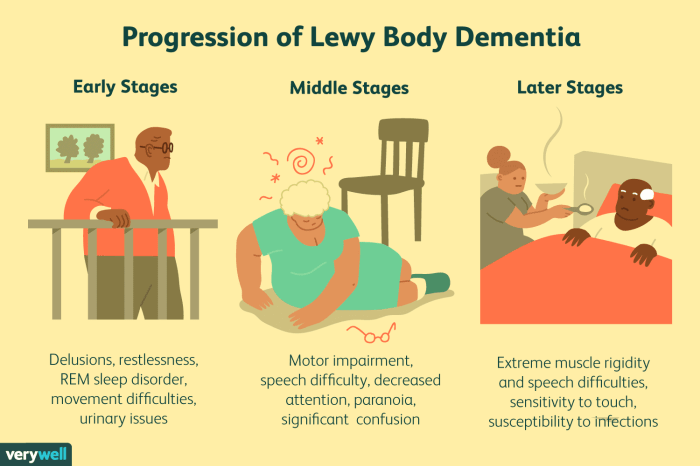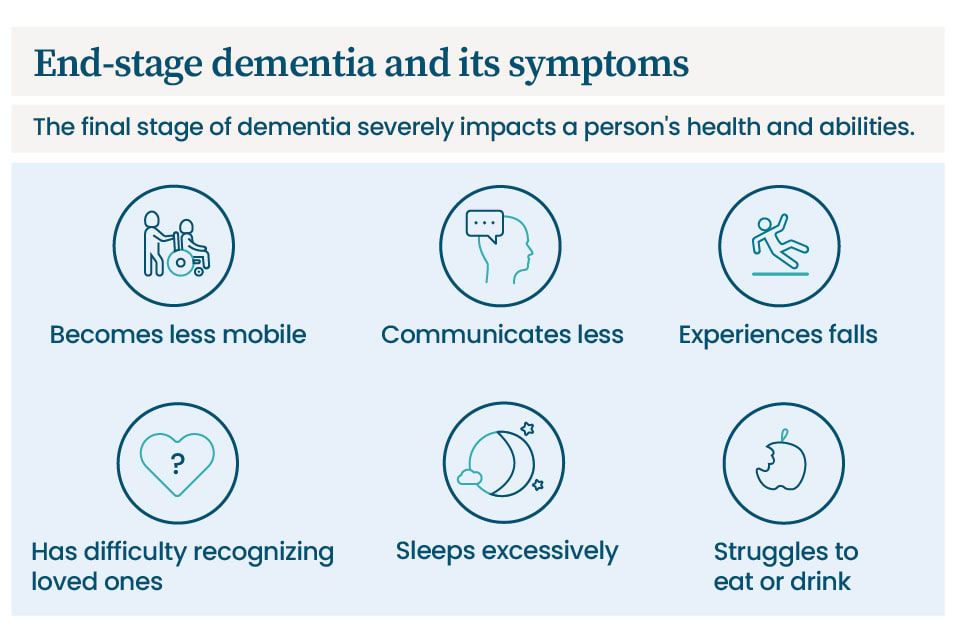End stage dementia teeth grinding – Teeth grinding, a common symptom of end-stage dementia, can significantly impact oral health and overall well-being. Understanding the causes, symptoms, and management strategies for this condition is crucial for caregivers and healthcare professionals.
This article delves into the neurological and physiological factors contributing to teeth grinding in individuals with advanced dementia. It explores the characteristic symptoms, methods for assessment and diagnosis, and the potential consequences of teeth grinding on oral health.
Causes of End-Stage Dementia Teeth Grinding

Teeth grinding in individuals with end-stage dementia is a multifaceted condition influenced by a complex interplay of neurological and physiological factors. Understanding the underlying causes is crucial for developing effective management strategies.
Neurological Factors
- Neurotransmitter imbalances:Altered levels of neurotransmitters such as dopamine, serotonin, and acetylcholine contribute to abnormal muscle activity and involuntary movements, including teeth grinding.
- Brain structure degeneration:Progressive damage to brain regions involved in motor control, such as the basal ganglia and cerebellum, can disrupt muscle coordination and lead to teeth grinding.
Physiological Factors, End stage dementia teeth grinding
- Muscle weakness:Reduced muscle strength and tone in the jaw can result in involuntary teeth grinding as the muscles struggle to maintain proper alignment.
- Orofacial pain:Dental pain or discomfort from ill-fitting dentures can trigger teeth grinding as a coping mechanism.
Symptoms and Diagnosis of Teeth Grinding in End-Stage Dementia
Teeth grinding in end-stage dementia manifests in various forms, and accurate diagnosis is essential for appropriate management.
Characteristic Symptoms
- Involuntary jaw clenching:Persistent or intermittent clenching of the teeth, often accompanied by a grinding sound.
- Pattern variation:Teeth grinding can occur at any time of day or night, with varying intensity and duration.
- Associated behaviors:Teeth grinding may be associated with other involuntary movements, such as facial grimacing or head rocking.
Differential Diagnosis
Differentiating teeth grinding from other oral habits or medical conditions is crucial:
- Bruxism:Teeth grinding related to sleep disorders.
- Malocclusion:Misalignment of the teeth, which can cause teeth grinding.
- Medication side effects:Certain medications, such as antidepressants, can induce teeth grinding.
Assessment and Diagnosis
Diagnosis involves:
- Clinical observations:Healthcare professionals observe the patient’s behavior and assess the presence of teeth grinding.
- Patient history:Caregivers or family members provide information about the patient’s symptoms and behaviors.
- Dental examinations:Dentists examine the teeth for signs of wear or damage consistent with teeth grinding.
Impact of Teeth Grinding on Oral Health: End Stage Dementia Teeth Grinding
Teeth grinding can have severe consequences for oral health, affecting the integrity of the teeth, gums, and supporting structures.
Tooth Damage
- Tooth wear:Prolonged teeth grinding abrades the tooth enamel, leading to sensitivity, pain, and tooth loss.
- Fractures:Excessive forces can fracture teeth, requiring restorative procedures.
- Damage to dental restorations:Teeth grinding can damage crowns, bridges, and fillings, compromising their functionality and longevity.
Periodontal Impact
- Gum recession:Teeth grinding can traumatize the gums, causing them to recede and expose the tooth roots.
- Bone loss:Chronic teeth grinding can damage the supporting bone structure, leading to bone loss and tooth instability.
Management Strategies for Teeth Grinding in End-Stage Dementia

Managing teeth grinding in end-stage dementia involves a multidisciplinary approach, encompassing non-pharmacological and pharmacological interventions.
Non-Pharmacological Interventions
- Behavioral modifications:Encouraging relaxation techniques, avoiding caffeine and alcohol, and providing sensory stimulation can help reduce teeth grinding.
- Oral appliances:Custom-made mouthguards or night guards can prevent teeth contact and minimize grinding forces.
- Sensory stimulation:Providing soothing activities such as music therapy or aromatherapy can promote relaxation and reduce teeth grinding.
Pharmacological Therapies
Medications may be considered when non-pharmacological interventions are ineffective:
- Muscle relaxants:Medications like baclofen or tizanidine can reduce muscle tension and involuntary movements.
- Antidepressants:Certain antidepressants, such as amitriptyline or paroxetine, can modulate neurotransmitter levels and alleviate teeth grinding.
- Antipsychotics:In severe cases, antipsychotics like olanzapine or risperidone may be used to control agitation and reduce teeth grinding.
Role of Caregivers in Managing Teeth Grinding

Caregivers play a vital role in managing teeth grinding in individuals with end-stage dementia:
Identification and Monitoring
- Observing behavior:Caregivers should monitor the patient for signs of teeth grinding, such as jaw clenching or grinding sounds.
- Documenting episodes:Keeping a record of teeth grinding episodes, including frequency, duration, and associated behaviors, can assist in diagnosis and management.
Support and Intervention
- Providing comfort:Caregivers can offer soothing measures such as warm compresses, gentle massage, or distraction techniques to reduce discomfort.
- Promoting relaxation:Creating a calm and relaxing environment can help alleviate anxiety and reduce teeth grinding.
- Ensuring proper nutrition:Maintaining adequate hydration and a balanced diet can support overall health and reduce the risk of teeth grinding.
Commonly Asked Questions
What are the common causes of teeth grinding in end-stage dementia?
Neurological changes, muscle dysfunction, and altered neurotransmitter levels can contribute to teeth grinding in individuals with end-stage dementia.
How can teeth grinding be differentiated from other oral habits or medical conditions?
Characteristic patterns, severity, and associated behaviors, such as jaw clenching or lip biting, can help differentiate teeth grinding from other oral habits or medical conditions.
What are the potential consequences of teeth grinding on oral health?
Teeth grinding can lead to tooth wear, fractures, damage to dental restorations, gum recession, and bone loss.
What are the effective management strategies for teeth grinding in end-stage dementia?
Non-pharmacological interventions, such as behavioral modifications, oral appliances, and sensory stimulation techniques, can effectively manage teeth grinding. Pharmacological therapies may also be considered in certain cases.